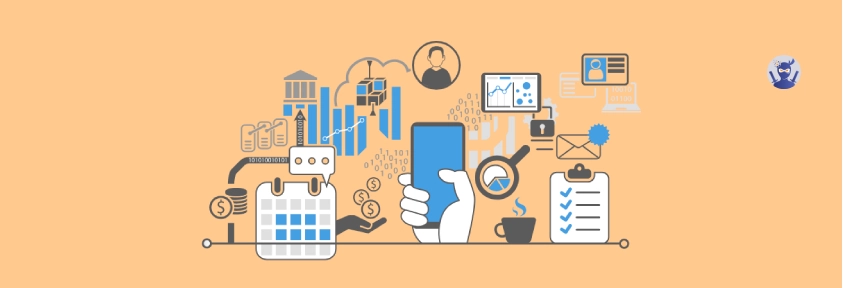Blockchain technology has emerged as a transformative force, revolutionizing industries across the globe. Its disruptive potential lies in its ability to create decentralized, tamper-proof ledgers that enhance transparency, security, and efficiency. Blockchain is reshaping businesses ‘ operations from finance to supply chain, healthcare to entertainment.
This disruption has fueled an unprecedented demand for anyone to have a blockchain career. Like the blockchain architect jobs, which need people with expertise to design, implement, and maintain blockchain solutions tailored to specific industry needs. They bridge the gap between cutting-edge technology and real-world applications. In today’s tech landscape, the relevance of becoming a blockchain architect cannot be overstated. As blockchain adoption soars, businesses seek professionals who can navigate this complex terrain.
Why Is Blockchain Deemed Disruptive?
- Decentralized: Blockchain eliminates the need for intermediaries like banks and centralized authorities. It empowers peer-to-peer transactions, reducing costs and increasing efficiency. This decentralized nature fundamentally changes how industries operate.
- Security: Using cryptographic techniques ensures that data on a blockchain is immutable and secure. This makes it extremely difficult for malicious actors to manipulate records or commit fraud, revolutionizing data integrity.
- Transparency: Every transaction on a blockchain is recorded in a transparent, unchangeable ledger. This transparency enhances parties’ trust, particularly in finance, supply chain management, and healthcare.
Who Is a Blockchain Architect?
A blockchain architect is a highly skilled professional responsible for designing, planning, and overseeing the development of blockchain-based solutions. They are pivotal in blockchain projects, serving as the masterminds behind the technology’s implementation. Their responsibilities include creating the overall architecture, selecting the appropriate blockchain platform, defining consensus mechanisms, and ensuring security and scalability.
Why Are Blockchain Architects Important?
Blockchain architects are indispensable in the realm of blockchain technology due to their pivotal role in designing secure and efficient solutions. Their expertise ensures blockchain projects are structured to withstand cyber-security threats and optimize performance. They select the right consensus mechanisms, implement robust security protocols, and design scalable architectures, mitigating potential vulnerabilities. Their impact on project success is profound, as their meticulous planning and execution directly influence the reliability and functionality of blockchain systems. In a rapidly evolving field like blockchain, certified blockchain architects are in high demand, playing a critical role in shaping the future of blockchain-powered innovations. This underscores their significance in blockchain recruitment and project execution.
Roles and Responsibilities of a Blockchain Architect
Blockchain architect certification acts as an additional credit for blockchain architects. They play a multi-faceted role in blockchain projects, with responsibilities spanning from technical design to security and collaboration. They are tasked with,
- Technical Architecture: Designing the overall blockchain architecture, including selecting the appropriate consensus mechanisms, data structures, and network topology.
- Platform Selection: Choosing the Right Blockchain Platform (e.g., Ethereum, Hyperledger, or a custom solution) based on project-specific requirements like scalability, privacy, and interoperability.
- Smart Contract Development: Developing and deploying smart contracts that automate processes and transactions on the blockchain, ensuring they are secure, efficient, and adhere to business logic.
- Security Measures: Implementing cryptographic measures to safeguard data, identities, and transactions, including encryption, digital signatures, and access control.
- Disaster Recovery: Creating robust disaster recovery and backup plans to ensure data integrity and system continuity in case of unforeseen events or cyber-attacks.
- Integration: Collaborating with cross-functional teams, including developers, testers, and business analysts, to ensure seamless integration of blockchain solutions with existing systems and processes.

Key Technical Skills of a Blockchain Architect
- Programming Languages: Mastery of programming languages like Java, Python, C++, and Solidity is essential for developing smart contracts and blockchain applications.
- Distributed Systems: A deep understanding of distributed systems, including consensus algorithms, peer-to-peer networking, and decentralized data storage, is crucial for designing the decentralized nature of blockchain.
- Cryptography and Security: Expertise in cryptographic techniques, such as digital signatures, encryption, and cryptographic hashing, is vital to ensuring data integrity, privacy, and secure transactions on the blockchain.
- Smart Contract Development: Knowledge of smart contract development, including coding, testing, and debugging, is crucial for automating processes and creating trustless transactions on the blockchain.
- Consensus Mechanisms: Understanding various consensus mechanisms, like Proof of Work (PoW), Proof of Stake (PoS), and Byzantine Fault Tolerance (BFT), helps in choosing the appropriate consensus for a project.
- Scalability Solutions: Familiarity with techniques for improving blockchain scalability, such as sharding, side-chains, and off-chain solutions.
Networking and Collaboration Are Crucial Skills for a Blockchain Architect
Networking and collaboration are paramount skills for a blockchain architect, as they greatly enhance the architect’s ability to design and implement successful blockchain solutions.
- Understanding Specific Requirements: Blockchain architects must collaborate closely with various departments within an organization to understand their unique needs and challenges. Effective communication and collaboration are vital for tailoring blockchain solutions to meet these specific requirements.
- Cross-Functional Collaboration: Collaboration extends beyond technical aspects and involves working with legal, regulatory, and compliance experts to ensure blockchain projects adhere to relevant laws and standards. Effective collaboration minimizes legal risks.
- Solving Complex Problems: Many blockchain projects involve intricate challenges that require interdisciplinary teamwork. Networking with professionals from diverse backgrounds enables architects to tap into a wide range of expertise and perspectives when tackling complex issues.
- Adaption and Innovation: Networking exposes architects to a variety of blockchain platforms, tools, and approaches. This exposure fuels innovation and helps architects adapt their strategies to the evolving industry landscape.
Education and Training for a Blockchain Architect
Education and training for aspiring blockchain architects can follow various paths, catering to both formal and self-guided learning.
- Specialized Degree Programs: Some universities offer specialized master’s degrees in blockchain technology or related fields like computer science or cybersecurity. These programs provide in-depth knowledge and research opportunities.
- Online Certification Courses: Online platforms offer a plethora of blockchain certification courses. These courses are advantageous because they are accessible, affordable, and often taught by industry experts. Notable certifications include Certified Blockchain Architect (CBA), Ethereum Developer, and Hyperledger Fabric Administrator.
- Hands-On Experience: Many certification programs emphasize hands-on experience through practical projects and labs. This practical exposure is invaluable for understanding the nuances of blockchain development and architecture.
- Blockchain Bootcamps: Bootcamps offer intensive, short-term training programs focusing on practical skills and real-world applications. This can be a quick way to gain expertise and kick-start a career as a blockchain architect.
- Self-Guided Learning: As blockchain is a dynamic field, self-guided learning through online tutorials, documentation, and open-source projects is also viable. Building personal projects and contributing to open-source blockchain communities can be an effective way to gain expertise.
Conclusion
In conclusion, becoming a blockchain architect offers an exciting opportunity in a rapidly expanding industry. Blockchain recruitment can be a hard process which can be dealt with by using companies. Companies like Blockchain Staffing Ninja can help in the process of blockchain recruitment. Key takeaways include the importance of their multifaceted technical skills, the necessity of networking and collaboration, and the various education and training paths available.
